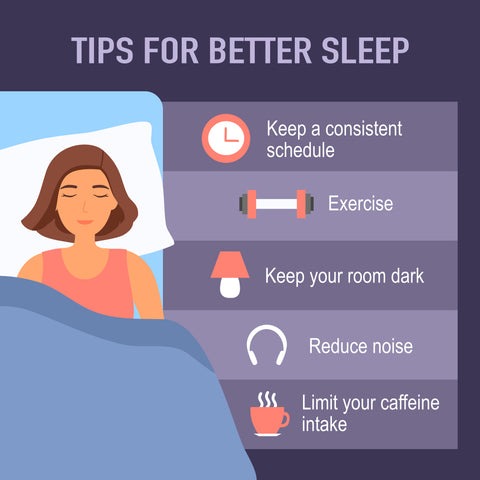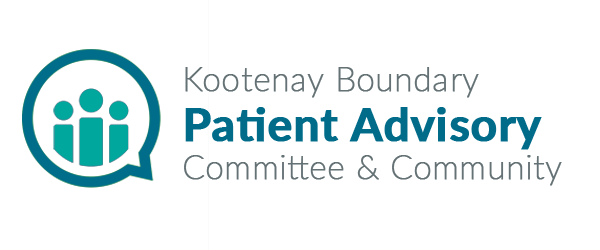Empowering the Citizen Patient

Article #6
Healthy People, Healthy Communities –
Being Proactive to Maintain Your Health
In this article of our monthly “Empowering the Citizen Patient” series, Dr. Mindy Smith, retired family physician and active member of the Kootenay Boundary Patient Advisory Committee, shares tips on being proactive to maintain your health. Join us as we continue our journey to empower both patients and those who care for them.
On magazine racks, podcasts, instagram, Facebook and even on the nightly news, everywhere we look, someone is telling us how to stay healthy and live longer and better lives. The reality is that staying healthy is easier for the young, but harder to achieve as we get older. Yet, when we look at all the information, there are three pieces of advice that ring true. The best way to stay healthy is to eat right, exercise nearly everyday, and get a good night’s sleep.
Eating Right
Eating right can be a challenge for some people. Even so, including fruit, vegetables and some protein (e.g., eggs, beans, fish, lean meat or chicken) in your diet every day is very important. Canada’s food guide can help with your meal planning (https://food-guide.canada.ca) Eating should be enjoyable and meals with friends and family and good conversation are great for your health! In general, the Mediterranean diet (https://bit.ly/medmealplan ) and the DASH diet (Dietary Approaches to Stop Hypertension; https://bit.ly/kbdashdiet ) have been shown to improve health.

Trying to lose weight?
-
- The best way to do this is to eat smaller portions of good foods at regular meal times; avoid high calorie items like soda, fruit juice and candy; sit less; and try to be less critical of how you look.
- Also start by setting a smaller weight-loss goal that is easier to do; even a 5-pound loss will help lower blood pressure and control blood sugar!
For people in need, there are several food banks in the Kootenay Boundary area. These are listed on the Fetch website (https://kb.fetchbc.ca) under Food. Food assistance includes the BC Farmer’s Market Nutrition Coupon Program, Trail United Church Food Bank, Community Harvest Food Bank (Castlegar), Good Food Bank (Nelson), Rossland Food Bank, and North Kootenay Lake Food Hub & Food Cupboard (Kaslo), and Boundary Community Food Bank (Grand Forks).

Kootenay Boundary residents Paul, Amy, Katie and Kim get their daily exercise on the Slocan Pools hike.
Exercise!
Moderate exercise can be a bonus both for your mind and body and lowers blood pressure. Doing an activity for 30 minutes most days like walking briskly, swimming some lengths, or biking is recommended. Strength training such as lifting weights, using resistance tubing, or rowing twice a week also helps to stay fit and keep bones strong. Any amount of exercise is better than no exercise!
Get those ZZZZZZZs
Sleep is important! Even though the amount of sleep a person needs varies, in general, 7-9 hours of nighttime sleep is required to stay healthy for adults, 9-12 hours for children ages 6-12 years, and even more for younger children. Short (20 minutes) naps can help when you can’t get enough sleep at night. If you’re having trouble sleeping, try a meditation, or turn on a soft light on and read a boring article or book, this usually does the trick! Check out this website to learn more getting better sleep: https://bit.ly/kbgoodsleep

Keep Your Teeth and Gum Healthy
Poor oral (mouth) health can not only result in you losing your teeth but also influences health. Regular brushing and flossing your teeth are important for preventing tooth decay (cavities), tooth loss, and gum disease. Professional teeth cleaning every 6-12 months, applying fluoride varnish for children ages 1-5 years and dental sealants 4 times from ages 6-12 years also helps prevent tooth problems. For children 0-6 years, there are Early Childhood Dental Development Programs through Kiro Wellness Centre in Trail, Nelson Health Center and Grand Forks Health Centre.
The West Kootenay Community TEETH Clinic Society offers low-cost dental care, including dentures, for low-income individuals and families throughout the West Kootenay area (https://www.teethclinicwk.ca/).
.
Medications Can Help
Medications also help prevent health problems. Taking 0.4-0.8 mg of folic acid daily for those who are pregnant or may become pregnant helps prevent neural tube defects (problems with the brain or spine) in their babies. People at high risk of heart disease may benefit from low-dose (81 mg) aspirin or cholesterol treatment to prevent heart attacks and strokes – check with your family practitioner. Your 10-year risk of heart disease can be calculated at internet sites like: https://bit.ly/kbheartcalc . To do this, you will need to know your cholesterol numbers or at least know if they are normal or high.
Using birth control can help prevent unplanned pregnancy. Use of condoms can also prevent sexually-transmitted infection. For information about sexual health, in addition to provision of free contraception, see https://www.optionsforsexualhealth.org.
Healthy habits can help us get the most out of life, avoid developing chronic diseases and need less health care.
We would love to hear from you!
Please take 3 minutes to give us your feedback and enter the draw to win a $50 Grocery card! Survey entries close June 16, 2024. While our grocery card draw is finished and the winners have been notified, we still would love your feedback!
-
- What did you think of this article?
- What could we do better?
- Any suggestions for other articles that would be helpful?
Please complete our short survey here!

Get the articles direct to your inbox!
